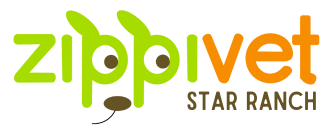Vaccinations
Wellness vaccinations for your pet
Like people, dogs and cats require regular vaccinations to protect them from infection and disease. A tailored vaccination program functions as the first line of defense to prevent disease and maintain wellness. Because each dog and cat is unique, your ZippiVet veterinarian will create a vaccination plan just for your pet, taking into account the American Animal Hospital Association (AAHA) vaccination guidelines.
At your pet’s first visit, ZippiVet veterinarians will develop a vaccination schedule that is specific to your pet’s individual needs. We understand that your pet’s lifestyle may change over the years and their first visit with us may not be their first visit with a veterinarian. At your first visit with Zippivet, you can expect that prior records and vaccinations will be reviewed to determine the best options for your pet. Discussing your pet’s health and daily life activities with your veterinarian will assist us in organizing the most appropriate and conservative plan to target their specific needs.
The following vaccinations are recommended by AAHA and ZippiVet:
Core (essential) vaccines for dogs:
- Rabies: This virus is transmitted in the bites and saliva of infected animals, and is nearly always deadly. Your puppy should have an initial rabies vaccination by 16 weeks of age. This vaccination is boostered 1 year later as your puppy grows into an adult. Thereafter, a regular booster schedule of 3 years should be followed
- Distemper, Parvovirus, Parainfluenza and Adenovirus (DAPP): These viruses cause serious disease in the intestinal tract, lungs, and brain, and can even be deadly. Your puppy should begin this vaccination between 8 and 16 weeks of age. Puppies receive boosters of this vaccine every three to four weeks until they are past the age of 16 weeks. An adult dog will receive a booster at 1 year and require boosters at least every 3 years.
- Leptospirosis: This bacterial infection is transmitted in the urine of infected animals (such as rats), and can cause disease in the liver and kidneys. It is very prevalent in urban, suburban, and rural areas, and therefore we recommend that all dogs be regularly vaccinated against Leptospirosis. This vaccination should be given to puppies at 12 to 16 weeks of age, boostered 3 to 4 weeks later, and then boostered annually.
At-risk vaccines for dogs:
- Parainfluenza-Bordetella ("Kennel Cough"): Dogs that are exposed to other dogs frequently, such as at boarding, training, dog parks, grooming, etc., should receive this vaccine, and many facilities require it. An initial vaccination is given as young as 8 to 12 weeks of age as drops in the nose. Adult dogs will receive a booster vaccination every year based on their lifestyle and needs.
- Canine Influenza: Dogs that are at-risk for kennel cough can also benefit from this vaccination. An initial set of two boosters three to four weeks apart is given as young as 8 weeks of age. An annual booster is given as long as exposure is still possible.
Core (essential) vaccines for cats:
- Rabies: This virus is transmitted in the bites and saliva of infected animals, and is nearly always deadly. Your kitten should have an initial rabies vaccination by 16 weeks of age. This vaccination is boostered 1 year later as your kitten grows into an adult. A one year duration or three year duration vaccine is available.
ZippiVet only uses Feline PureVax Rabies vaccinations that are non-adjuvanted, reducing the potential risks to feline patients such as injection site reactions and chronic inflammation. - Feline Herpesvirus, Calicivirus, Panleukopenia (FVRCP): These viruses cause upper respiratory infections and systemic illness. Your kitten should begin this vaccination between 8 and 16 weeks of age. Kittens receive boosters of this vaccine every three to four weeks until they are past the age of 16 weeks. Current AAHA recommendations include a booster at 6 months of age, then one year later. An adult cat receives a booster every 1 to 3 years based on exposure risk.
- Feline Leukemia (FeLV): This virus is transmitted from infected cats by contact such as mutual grooming or sharing food bowls. The virus can lead to blood cancer (leukemia) or immune deficiency, making the cat more susceptible to infections. Cats that have outdoor access to other cats, or homes that have high numbers of cats are considered at-risk.
The Feline Veterinary Medical Association (FelineVMA) recommends this vaccination for all kittens regardless of risk. Kittens should be tested for this disease prior to vaccination. An initial vaccination should be administered between 8 to 12 weeks of age followed by a booster 3 to 4 weeks later.
An adult cat may need this vaccination based on their lifestyle. If your cat goes outdoors or is otherwise exposed to other cats, this vaccination is important as part of their vaccination schedule. This vaccination can be administered every 1 to 3 years based on exposure risk. Cats that go outside should also be tested annually for this disease.
For general questions and booking information, contact our team today! (512) 596-3749
